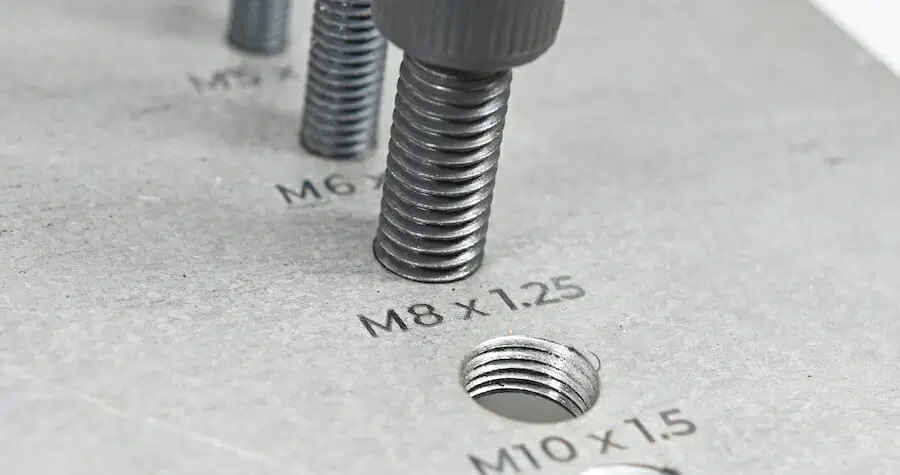Thread tapping, a fundamental process in metalworking and manufacturing, involves creating threads in holes to enable the insertion of screws or bolts. This seemingly straightforward operation requires careful consideration, especially when selecting the appropriate thread tap for the job. The consequences of choosing the wrong type of thread tap such as the Metric Tap for the material at hand can be significant, leading to a series of issues that affect the integrity of the final product and, ultimately, the overall efficiency of the manufacturing process.
When embarking on a thread tapping project, one of the primary risks associated with selecting the wrong thread tap lies in the potential for damage to the workpiece. Different materials demand specific thread taps designed to cut into them effectively. Using a tap ill-suited for a particular material can result in uneven threading, increased friction, and, in extreme cases, the formation of metal shavings that compromise the structural integrity of the workpiece. This damage not only undermines the aesthetic quality of the product but also poses a serious risk to its functionality and longevity.
Moreover, choosing the wrong thread tap such as Trapezoidal thread taps can lead to issues such as thread stripping. Thread stripping occurs when the threads in the tapped hole are unable to withstand the applied load, causing them to shear or deform. This compromises the mechanical strength of the threaded connection, rendering it susceptible to failure under stress. Galling, on the other hand, involves the transfer of material between the tap and the workpiece, resulting in friction-induced welding and potential thread damage. Both thread stripping and galling are serious concerns that can compromise the reliability and safety of the final product.
Apart from the mechanical hazards, an improper choice of thread tap can detrimentally impact the threading process’s efficiency. Employing a tap with an inaccurate pitch or thread count can result in irregularities in the threaded holes, complicating the attainment of a secure and snug fit for screws or bolts. This lack of precision not only impedes the overall quality of the end product but also mandates supplementary corrective actions, like re-threading or reworking, thereby substantially amplifying production time and costs.
Furthermore, the wrong thread tap choice can impact the overall lifespan of the tapping tool itself. Different thread taps are designed to withstand varying levels of stress and abrasion based on the materials they are intended to cut. Using a tap beyond its specified capacity can lead to premature wear and breakage, necessitating frequent tool replacements and increasing operational downtime. This not only adds to the overall cost of production but also disrupts the workflow, leading to delays and potential backlogs in manufacturing schedules.
The risks associated with choosing the wrong type of thread taps for your thread tapping needs extend far beyond surface-level concerns. From compromising the structural integrity of the workpiece to increasing the likelihood of thread stripping and galling, the consequences are vast and impactful. Precision and careful consideration in selecting the appropriate thread tap are crucial for ensuring the success of any thread tapping project.


